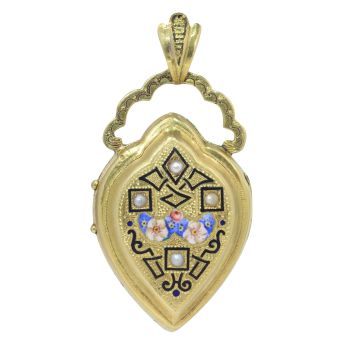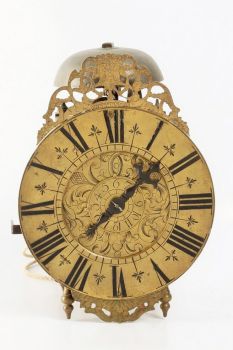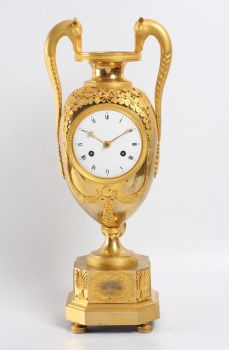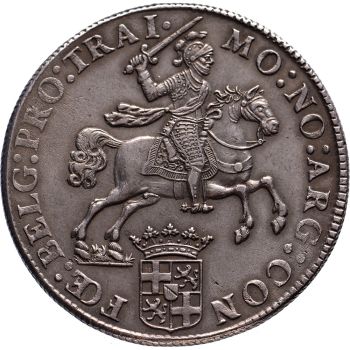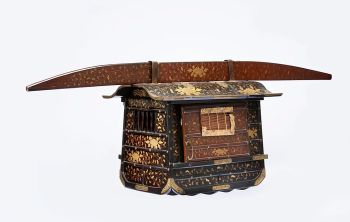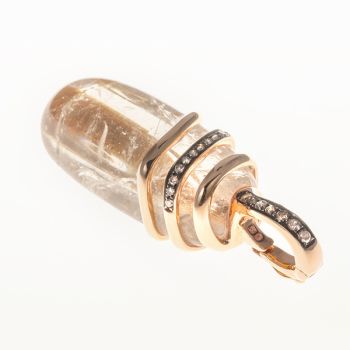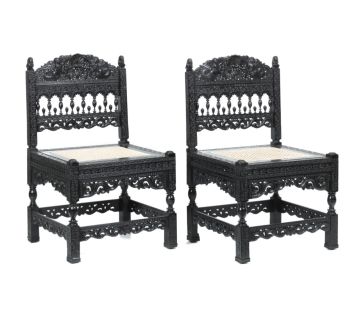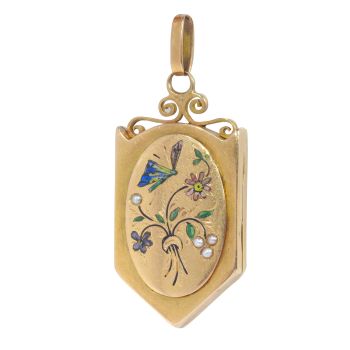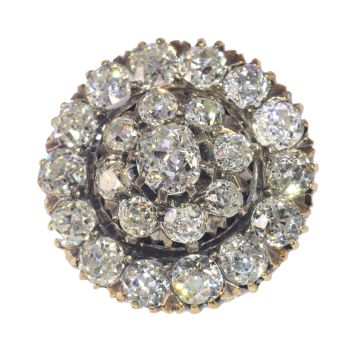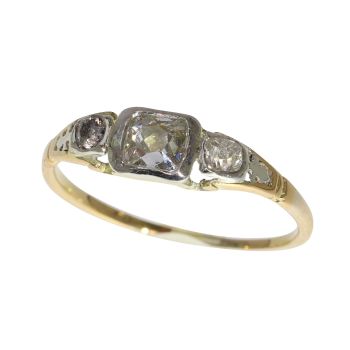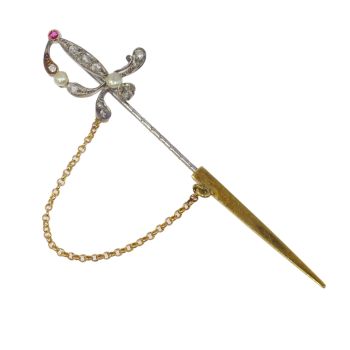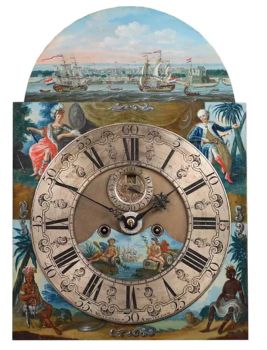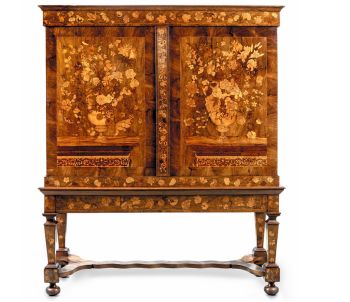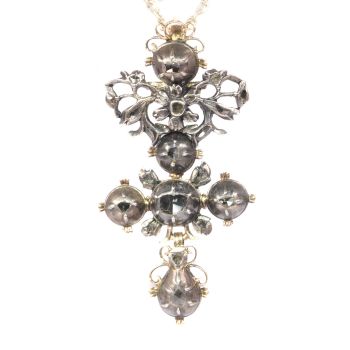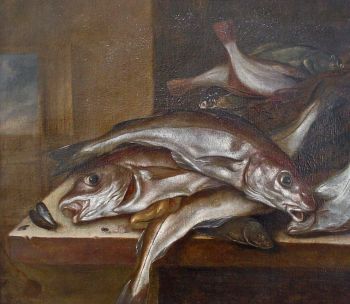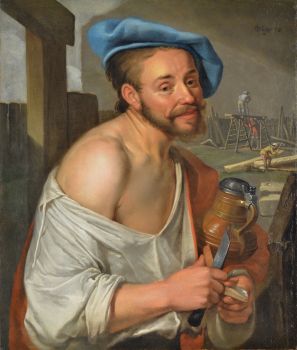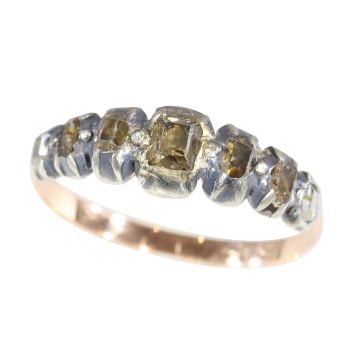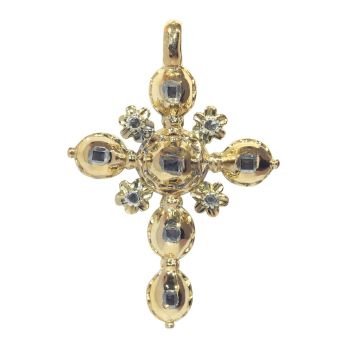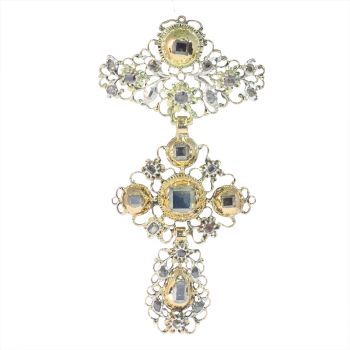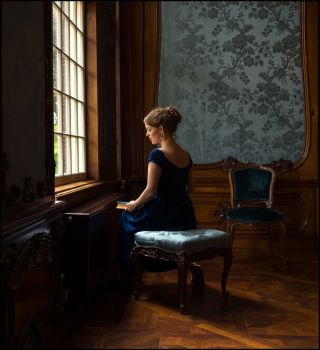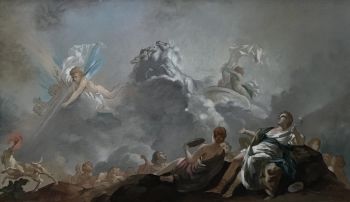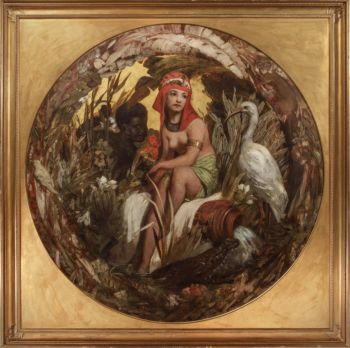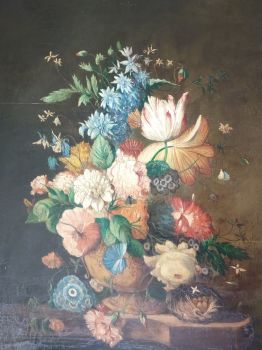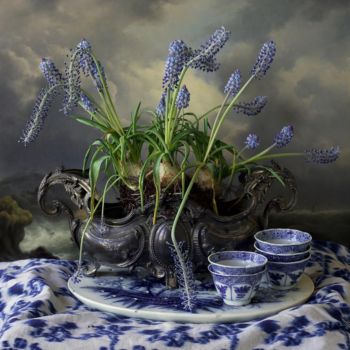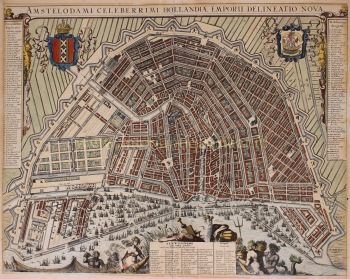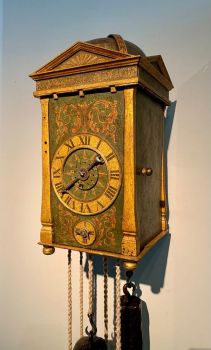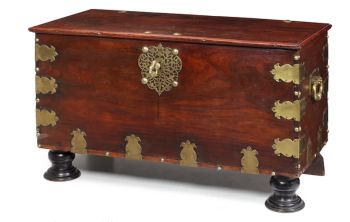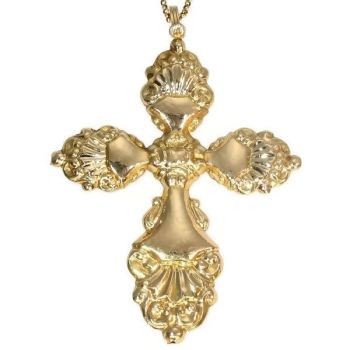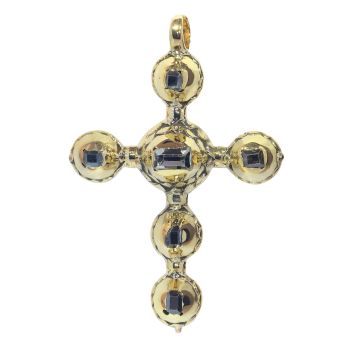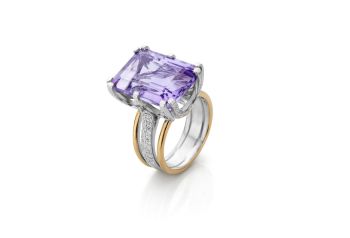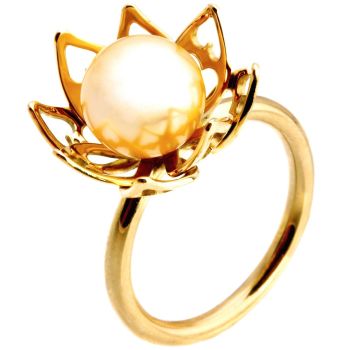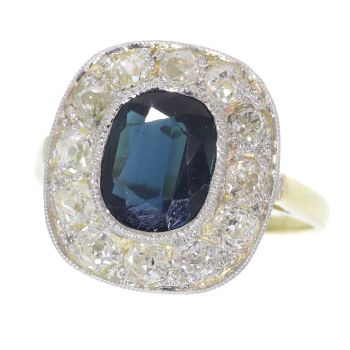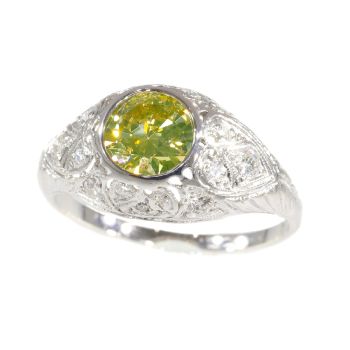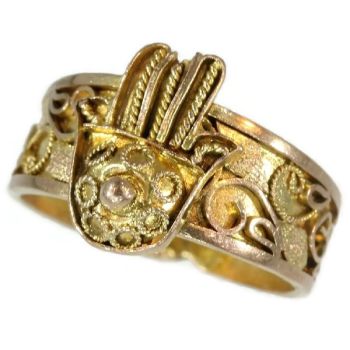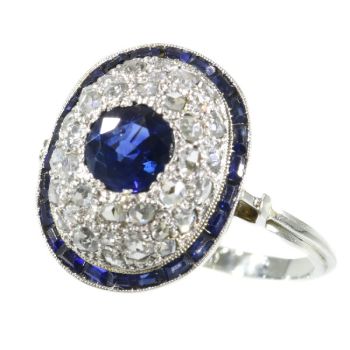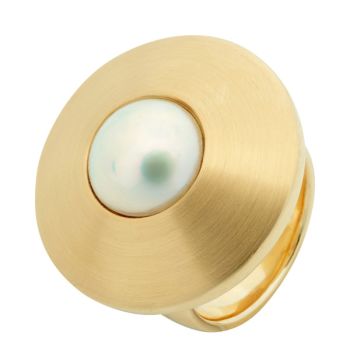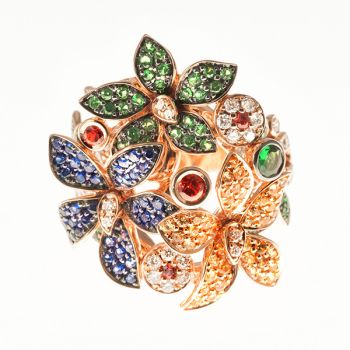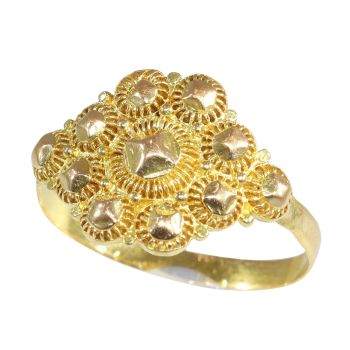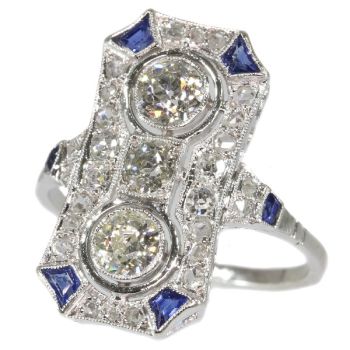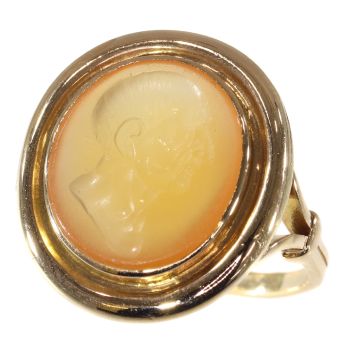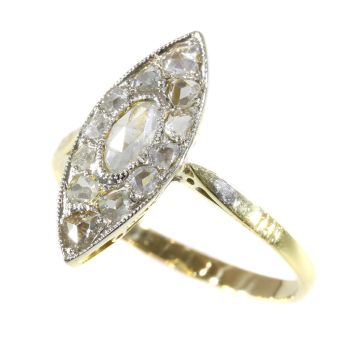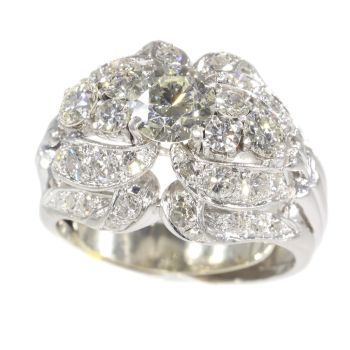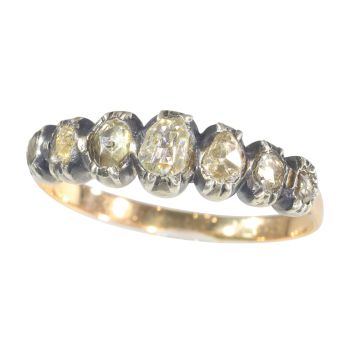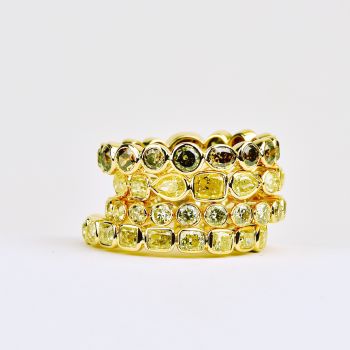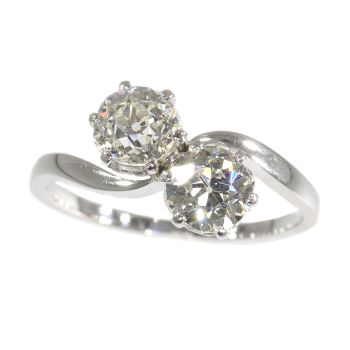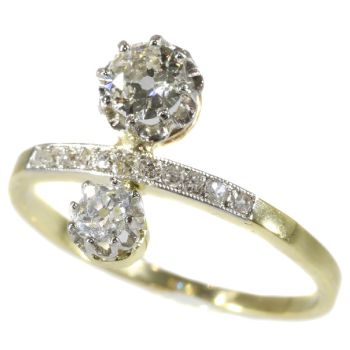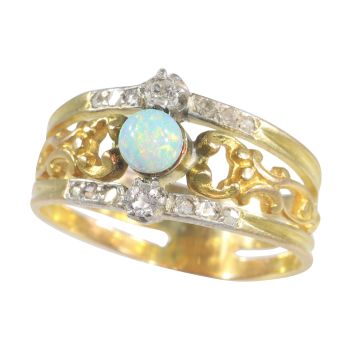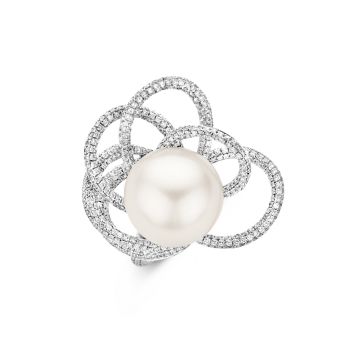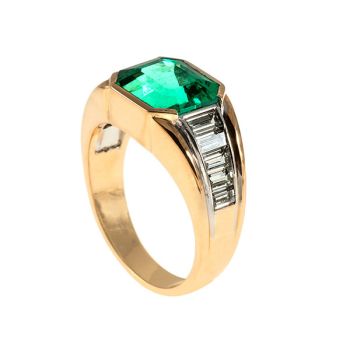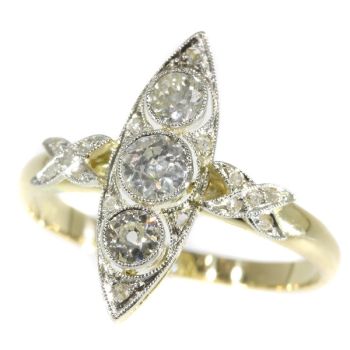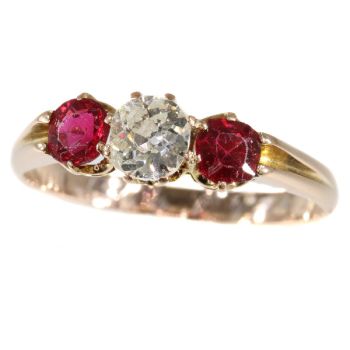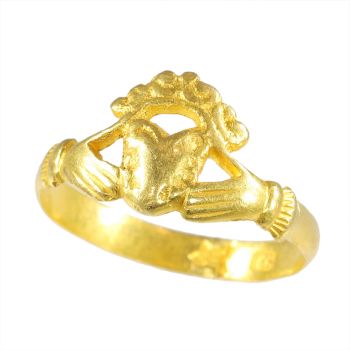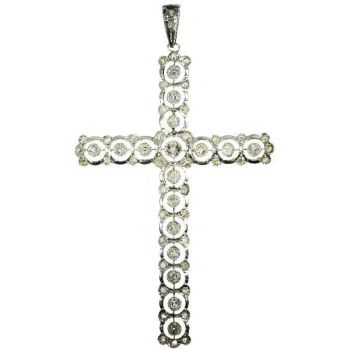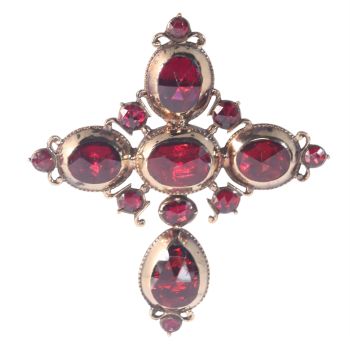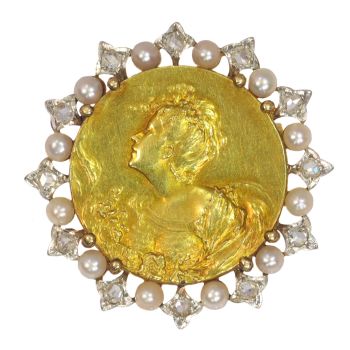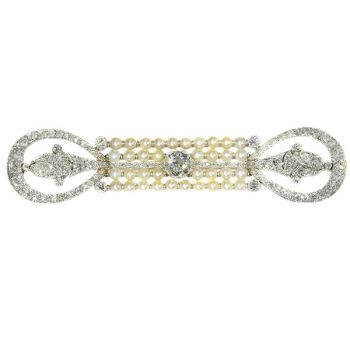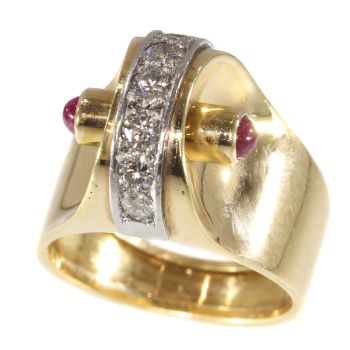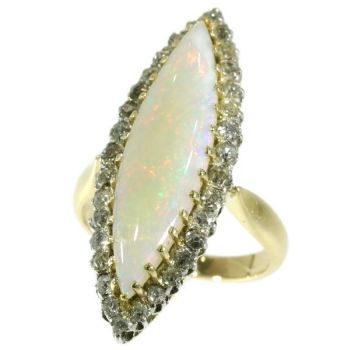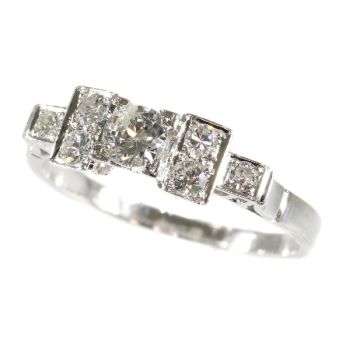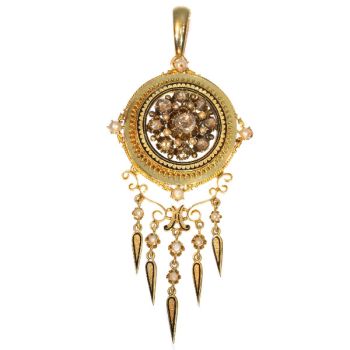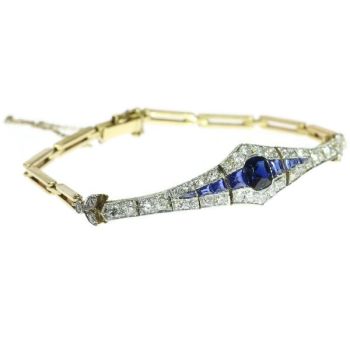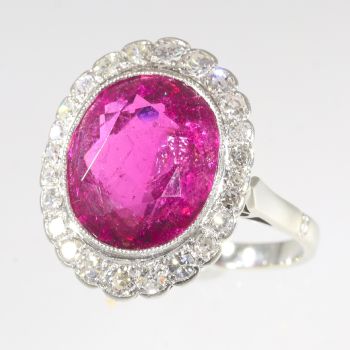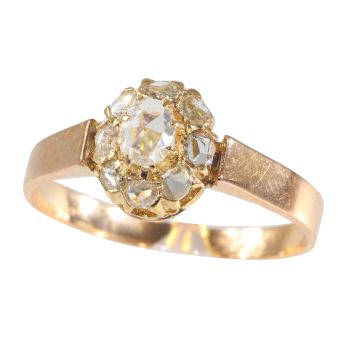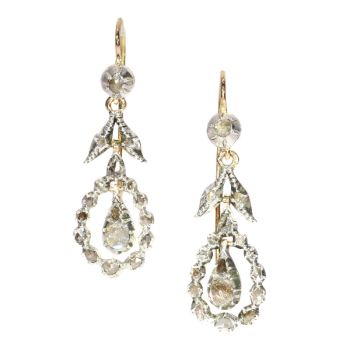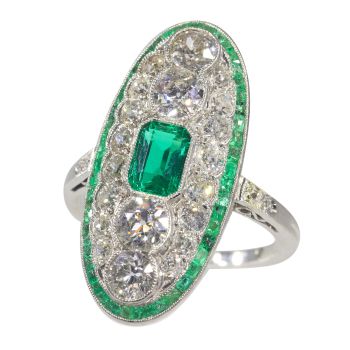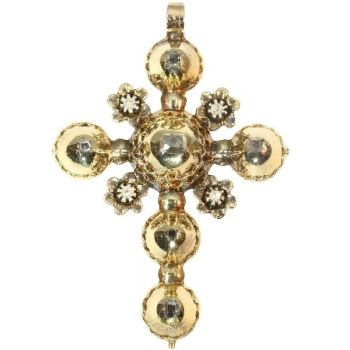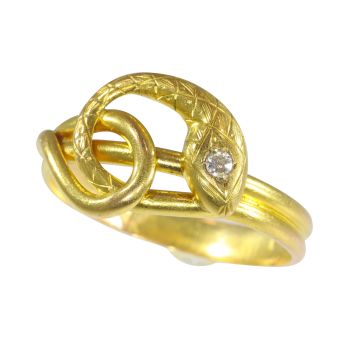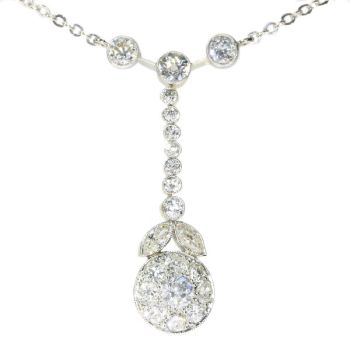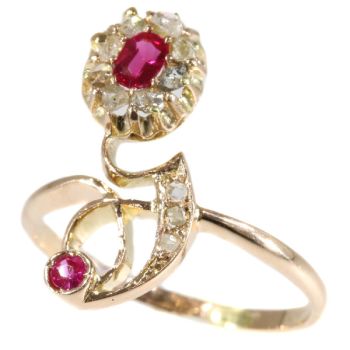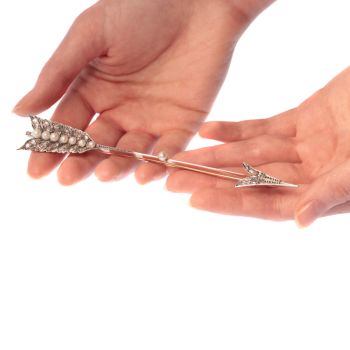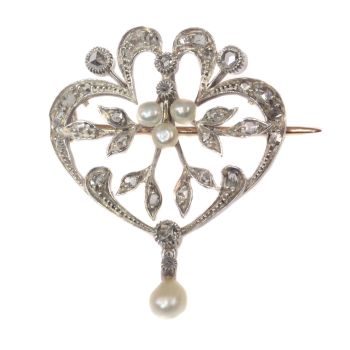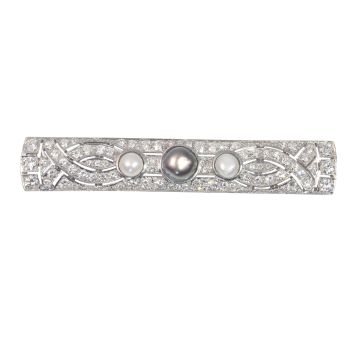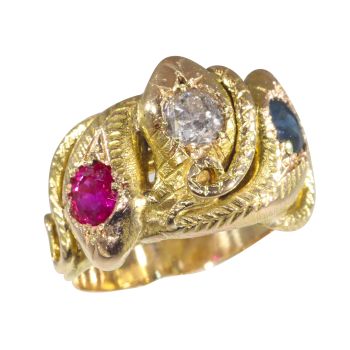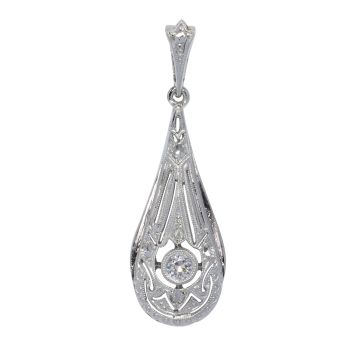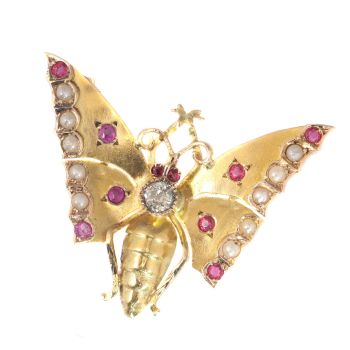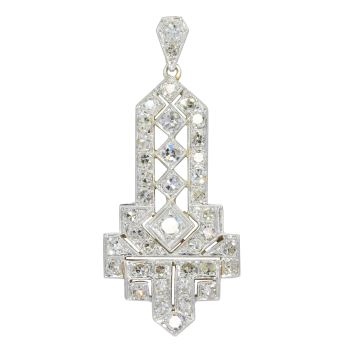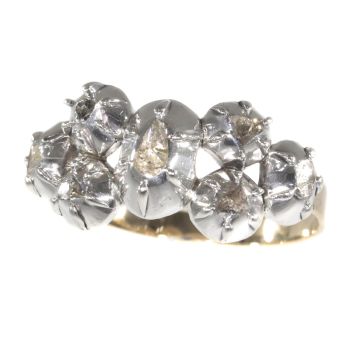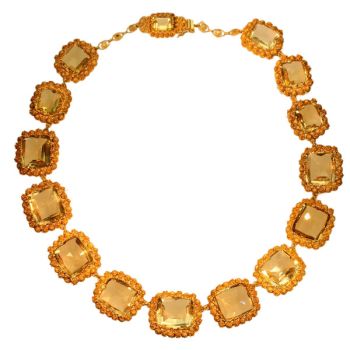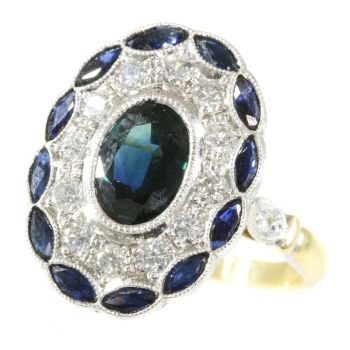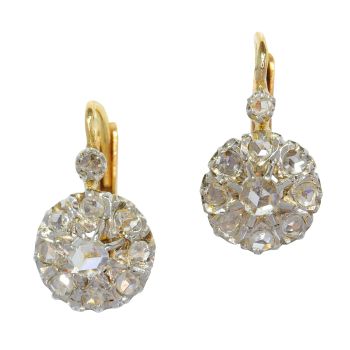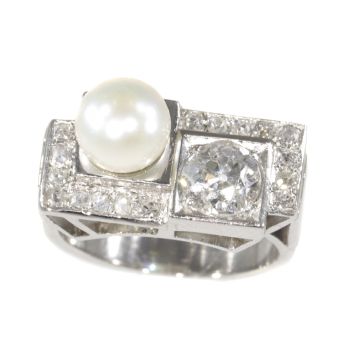Historical Baroque Diamond Ring from the 1680s 1680
Artista Desconocido
DiamantePiedra preciosa
€ 9.250
Adin Fine Antique Jewellery
- Sobre la obra de arte
This vintage antique ring from the 1680s exemplifies Baroque artistry with its dynamic movement and overt emotion. Crafted in warm yellow gold and silver, the ring features seven table cut rose cut diamonds set on foil to enhance their lustre. The topsection of the ring dates back to between 1650 and 1700, while the shank was replaced around 1840, evidenced by the horse head hallmark. This piece, with its rich history and intricate craftsmanship, is likely from France or Belgium. The combination ofBaroque style and the meticulous setting technique makes this ring a timeless treasure.
Antique jewelry object group
ring
Condition
very good condition
more info on our condition scale
Country of origin
France or Belgium (see explanation on hallmarks further in text)
Style
Baroque - Baroque is an artistic style prevalent from the late 16th century to the early 18th century in Europe. It is most often defined as "the dominant style of art in Europe between the Mannerist and Rococo eras, a style characterized by dynamicmovement, overt emotion and self-confident rhetoric".
See also: Baroque
more info on styles
Period
ca. 1680
Events & facts of this era, poetry of this era, fashion of this era.
Material 18K
warm yellow gold and silver (touchstone tested)
more info on precious metals
Technique
The rose cuts are set on foil. This is a special technique that was used to bring the lustre of the diamonds to its best quality.
Extra information
The main part of the ring (the top section) was crafted sometime between 1650 and 1700, as indicated by the diamond's cut. However, the shank was replaced around 1840, as evidenced by the horse head hallmark. Traces of this work can still be seen on theinside of the ring.
Diamonds
Seven table cut rose cut diamonds. We do not have the weight of the diamonds which is normal in our trade when it comes to rose cuts.
All diamonds we offer are screened by the I.J.G.C. for whether they are natural or synthetic, and all diamonds in this jewel are 100% guaranteed to be natural.
Birthstones
Diamond is the birthstone (or month stone) for April.
more info on birthstones
Hallmarks
The control mark here represents a horse’s head and was in use in Belgium from 1831 and in France from about 1838.
more info on hallmarks
Dimensions
band width top of ring 0,69 cm (0,27 inch)
see picture with a ruler in millimeters and inches
Weight
2,70 gram (1,74 dwt)
Ring size Continental EU: 58 & 18½ , Size USA: 8¼ , Size UK: Q
Resizing
Free resizing (only for extreme resizing we have to charge).
more info on ring sizes
Adin Reference Nº
24161-0031
Copyright photography
Adin, fine antique jewellery
Additional information
our latest acquisitions
jewelry glossary
wall of fame
visit us in Antwerp
subscribe to our mailinglist
- Sobre el artista
Puede suceder que un artista o creador sea desconocido.
Algunas obras no deben determinarse por quién está hecho o por (un grupo de) artesanos. Algunos ejemplos son estatuas de la Antigüedad, muebles, espejos o firmas que no son claras o legibles, pero también algunas obras no están firmadas en absoluto.
También puedes encontrar la siguiente descripción:
•"Atribuido a …." En su opinión, probablemente una obra del artista, al menos en parte.
•“Estudio de….” o “Taller de” En su opinión, una obra ejecutada en el estudio o taller del artista, posiblemente bajo su supervisión
•“Círculo de…” En su opinión, una obra del período del artista que muestra su influencia, estrechamente asociado con el artista pero no necesariamente su alumno.
•"Estilo de …." o “Seguidor de…”. En su opinión, una obra ejecutada al estilo del artista pero no necesariamente por un alumno; puede ser contemporáneo o casi contemporáneo
•"Manera de …." En su opinión una obra al estilo del artista pero de fecha posterior
•"Después …." En su opinión, una copia (de cualquier fecha) de una obra del artista
•“Firmado…”, “Fechado…” o “Inscrito” En su opinión, la obra ha sido firmada/fechada/inscrita por el artista. La adición de un signo de interrogación indica un elemento de duda.
•“Con firma…”, “Con fecha…”, “Con inscripción…” o “Lleva firma/fecha/inscripción” en su opinión la firma/fecha/inscripción ha sido añadida por alguien que no es el artista
¿Está interesado en comprar esta obra de arte?
Artwork details
Related artworks
Artista Desconocido
UN MODELO JAPONÉS DE UN NORIMONO, UN PALANQUÍN1650 - 1700
Precio a consultarZebregs & Röell - Fine Art - Antiques
1 - 4 / 12Artista Desconocido
A Surinam-themed Amsterdam long-case clock1746 - 1756
Precio a consultarZebregs & Röell - Fine Art - Antiques
 curada por
curada porGallerease Magazine
 curada por
curada porDanny Bree
 curada por
curada porDanny Bree
Peter Paul Rubens (circle of)
Portrait of a man dressed up as an oriental man1620 - 1630
Precio a consultarGallerease Selected
Artista Desconocido
A Dutch colonial Indonesian betel box with gold mounts1750 - 1800
Precio a consultarZebregs & Röell - Fine Art - Antiques
Eduard Charlemont
‘Allegories of Africa and America’1872
Precio a consultarZebregs & Röell - Fine Art - Antiques
Johannes van Dreght
Antique Dutch still life flowers in vase1740 - 1800
Precio a consultarGallerease Selected
Artista Desconocido
A superb Indonesian royal gem-set gold overlaid silver betel box19th century
Precio a consultarZebregs & Röell - Fine Art - Antiques
Artista Desconocido
Een Gotische zuidelijke Nederlanden wandklok1580 - 1590
Precio a consultarNico van den Assem restauratie
1 - 4 / 24- 1 - 4 / 24
- 1 - 4 / 24
- 1 - 4 / 12









